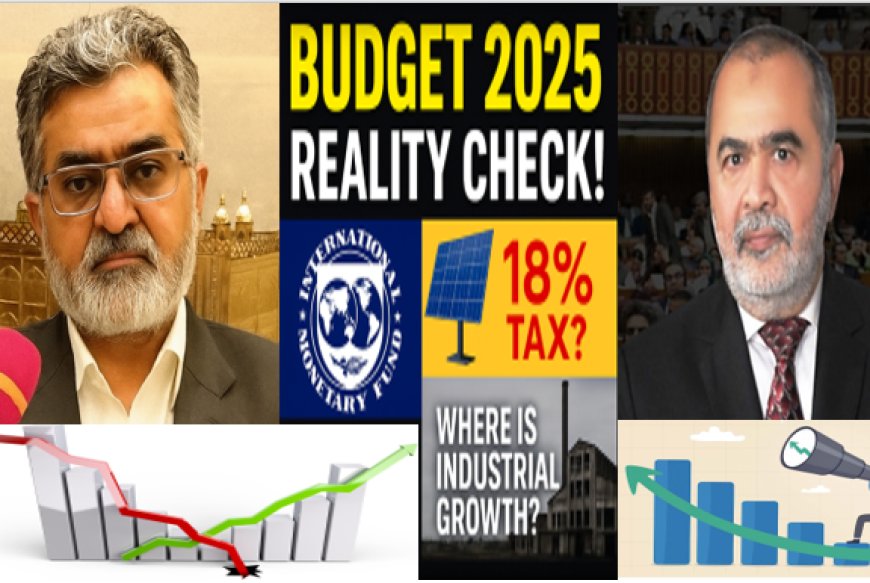Federal Budget Facades Condemnation: Industry Leaders Warn of Improbable Targets and Poor Planning
Top voices from Karachi Chamber, Muhammad Jawed Bilwani and Idris Memon, react to Federal Budget 2025-26. They concern over targets, regressive tax policies, and lack of wide-ranging economic planning.

By: Tariq Masaud
The Federal Budget has sparked criticism from industrial leaders & economic analysts. In exclusive interviews, Muhammad Jawed Bilwani and Idris Memon, both senior members of the Karachi Chamber of Commerce & Industry, have articulated serious concerns over the government's fiscal direction.
President KCCI Jawed Bilwani: "Budget Targets Are Impractical"
Bilwani censured the government for presenting higher revenue targets notwithstanding missing last year’s goals:
“No one happy with budget session. Last year's targets were not accomplished, yet this year they’ve been increased. Who is answerable for that inaccuracy? Why no accountability?”
He worried about importance of increasing the tax net through real data like electricity consumption and business utility networks, but lamented that the authorities never acted on such proposals.
He questioned the government’s poverty alleviation claims, saying:
“You talk about to help poor people, but many of them never even entered a bank. How will they advantage from support funds that require bank accounts?”
Bilwani accentuated that, the industrial growth is only path for employment generation and economic revival.
Idris Memon: "Budget Prepared Without Real Stakeholders Input"
Idris Memon acknowledged that the economic condition is tough but criticizing the lack of stakeholder involvement:
“Any budget plan is discussed with the IMF but local stakeholders are not consulted.”
He appreciated the relief for salaried persons and decrease in customs duties, he slammed the 18% sales tax on solar panels:
Memon also talk about irregularities in tax policy, especially regarding filers and non-filers. He criticized the recent move allowing FBR officials to withdraw money from tax accounts without due process, calling it a violation of trust.







